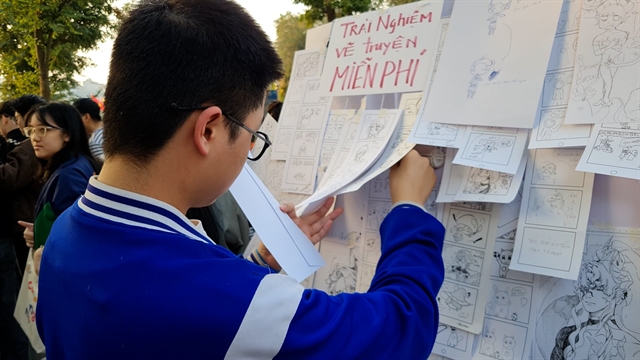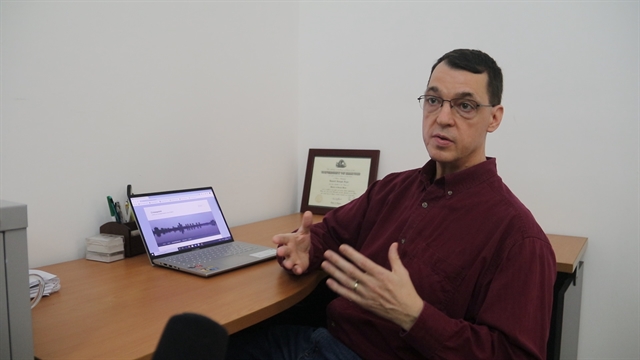 Life & Style
Life & Style

Russell Fryer is a licensed clinical social worker from the US and founded the counselling service Crosspoint Vietnam in 2011. He's also part of the Hanoi Counseling Psychology Group. Peter Cowan speaks to him about maintaining mental health during the COVID-19 pandemic.
Peter Cowan speaks to him about maintaining mental health during the COVID-19 pandemic.
What mental health issues will people be facing in the pandemic?
The biggest thing, of course, is initially is fear, which is a normal response.
Fear is meant to help us to know we need to protect ourselves; the problem is when it turns into a constant anxiety or just a sense of stress all the time.
So those are going to be normal reactions that I think all of us will experience.
What can people do to help alleviate these issues?
The things that everyone can do are three basic things.
Making sure that you’re sleeping enough, get on a regular sleep pattern. Also that you’re eating regularly, that you’re eating healthy food so that you’re giving your body the proper fuel. And then exercise, I can’t emphasise that enough.
Even if you can just get out and walk, it’s easy to keep social distance right now in Hà Nội because the streets are more empty than ever, so you can go out for a walk and keep social distance and get your exercise in.

|
| Russell Fryer in his Crosspoint Vietnam office in Ha Noi's Tay Ho District. — VNS Photo Hồ Hoàng |
What problems will social distancing, isolation and quarantine pose?
The biggest concern I have for people is them feeling isolated. If they feel isolated and cut off that is not healthy for their mental health and so it’s really important if their inside, or self-quarantined or quarantined by the Government to make sure that they are reaching out to other people, that they have communication going, that they do not feel isolated, that’s really important.
They can also do other things that can help them if they know they’re going to be quarantined to get supplies.
It might sound funny, but a lot of people find adult colouring books really helpful as it keeps them focused to right now.
Anxiety takes us to a ‘what if’, to the future. So things like a project, a puzzle, colouring, all those types of things help us stay in the here and now.
How should people help an isolated friend or relative?
It’s really helpful to actually initiate conversation. Check on them, ask them how they’re doing.
When people are stressed or feeling anxiety and they know that there’s a caring person listening to how their doing, it helps lower their stress.
The important thing to remember is not to offer advice or to minimise what they’re going through.
Don’t compare it to something you’ve done in the past, just really try to listen to what they are experiencing and how difficult it is for them and try to understand where they’re at and not compare it to what you are experiencing.
It’s just trying to be a helpful ear and really listen. Initiate the contact, don’t wait for them to try and contact you and ask for help.
What online resources do you recommend for mental health?
The CDC in the US for English speakers they have a website that deals specifically with mental health and it will talk about some of the things I just talked about.
The WHO also has part of its website for mental health as well.
Those are two reliable resources that can help you know what to do to keep yourself, your family, your friends and others around you safe.
Is there extra stress for someone abroad and away from their family?
Especially if they’re from a country where the outbreak has really grown rapidly it can bring a lot of concern
See what your options are, see what’s safe for you, if it’s better to stay put then just remain in contact with your family.
Talk to your friends here; make sure that you are getting the support that you need.
If you are feeling over anxious then that’s the time to seek professional help, when you cannot manage your anxiety.
How should people moderate their media intake?
One of the things that we as people when we feel out of control we try to get information so we can get control and all the media coverage will not actually help bring that about, it just raises our anxiety.
It’s good to be informed; it’s good to choose your resources because obviously there’s some that are spreading misinformation or panic but as you consume media, be paying attention to your own stress and anxiety level.
If you notice it starting to increase, I would say take a break from media, because it’s not going to help your mental health or the people around you. — VNS




